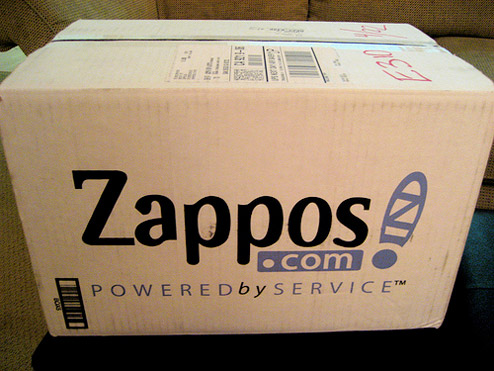In the news from Britain in the past week has been a speech by Culture Minister Maria Miller on the arts and the economy in the UK - the full text is here. Commentary has ranged from the concern about putting too much emphasis on the economic, to how we ought to define cultural industries in the contemporary world. I would like to focus on what linkages the Minister sees between culture and the economy. As Tim Harford notes, the speech is a bit of a jumble, so let us try to untangle some of the knots. I see three kinds of ways to think about … [Read more...]
Archives for April 2013
Lotteries should not be used to fund the arts
Blog neighbor Greg Sandow posts about the relationship between arts funding and gambling, especially regarding early Italian opera. It's tongue in cheek, but he concludes: For those without a sense of humor: I know very well that gambling raises moral questions, and legal questions, too, not to mention questions involving real estate. Where would the Met put its new casino? Where in the opera house would there be room enough? But let’s not forget that gambling — I’ll never call it “gaming,” its euphemistic marketing meme — has spread … [Read more...]
Strategic gaps in the paywall
At Slate, Matt Yglesias reports that advertising revenues are down, but subscription revenues are up, at the New York Times: I've been skeptical about digital subscription models for a long time, but I'm turning into a believer. A key change has been the development of technological means of making the paywalls actually pretty porous, which turns them into more a form of price discrimination than anything else. A well-designed paywall attracts revenue from hardcore fans of a website while still making it possible for casual fans to read the … [Read more...]
Today in concession fares
Laura Pedersen of the New York Times reports: A packed crosstown 86th Street bus going west. A man and a child who looks to be about 4 are sitting side by side. A large older woman seated nearby belligerently says, “You didn’t have to pay for that child, so you must hold it on your lap.” The man politely replies, “You paid only a senior half fare, so you can only use half a seat.” Conversation over. … [Read more...]
Why are tickets for rock concerts so expensive?
Artsjournal links to a CBC story on the prices of concert tickets: Whether it's Justin Bieber or the Rolling Stones that fans want to see in concert, they'll likely be paying dearly. "At first, we only spent $350. Then, the next time, we spent $450," 16-year-old Bieber fan Cara Corbett and her best friend Tyra Bright told CBC News. "This year, it was like $650 and I was like 'I'm done ... I'm not spending any more.'" Back in the 1970s, a ticket to a Rolling Stones concert in Toronto cost around $8. Tickets for the band's upcoming … [Read more...]
Arts policy research is expensive: a contrasting view
In an earlier post I noted the high expense of "gated" academic journals, and questioned why the global network of research universities has continued to use a system where academics produce research articles (sometimes at high cost), serve as peer-reviewers, and as editors, without renumeration, and then pay publishers significant fees to access the published versions of those works. Why not use low-cost (but still peer-reviewed) open-access platforms? A new working paper by Adam Mossoff of George Mason University Law School provides a … [Read more...]
Internet sales should be taxed
The Washington Post reports that the Senate is soon to vote on the issue of sales taxes on goods sold over the internet: The Senate is planning to vote on a bill as soon as Monday that would give states the authority to collect sales taxes on all Internet purchases, handing local governments as much as $11 billion per year in added revenue that they are legally owed — but that hasn’t been paid to them for years. ... As states have become more strapped for cash since the recession, local officials have fought back. New York passed an “Amazon … [Read more...]
Creative Communities
I'm happy to report that Creative Communities: Art Works in Economic Development has been released by Brookings Institution Press. Some background: In 2011, discussions with the Research and Analysis branch of the National Endowment for the Arts led to the idea for a symposium on "The Arts, New Growth Theory, and Economic Development." A call for original research papers was issued, and on May 10 last year the symposium took place, hosted by the Brookings Institution and sponsored by the NEA. Immediately after, we set to work selecting … [Read more...]
The bottom of the hourglass
At Reuters, Peter Rudegeair writes: What’s a retailer to do with a widening gap between rich and poor customers? Starbucks is the latest chain to target America’s “hourglass economy.” By cutting 10% off its grocery-store coffee bags while keeping in place the price hikes it put in place in its cafés last year, Starbucks is simultaneously pushing both its discount and premium products. It’s a sensible strategy: low-wage occupations have dominated new jobs in the last few years, even as high-earners captured 121% of the income gains of the … [Read more...]
How dynamic pricing works
Let's begin with the basic analysis. It's Tuesday, and you have something on offer for Saturday night. You might be a hotel owner and you have vacancies for that night, your airline might have a scheduled flight from Tulsa to Kansas City with some seats still available, or you might be putting on a show that has not yet sold out. In each of these cases, you are certainly charging a current price well above marginal cost (the cost to you of putting a family in the otherwise empty hotel room, or getting a extra passenger on the flight, or … [Read more...]










